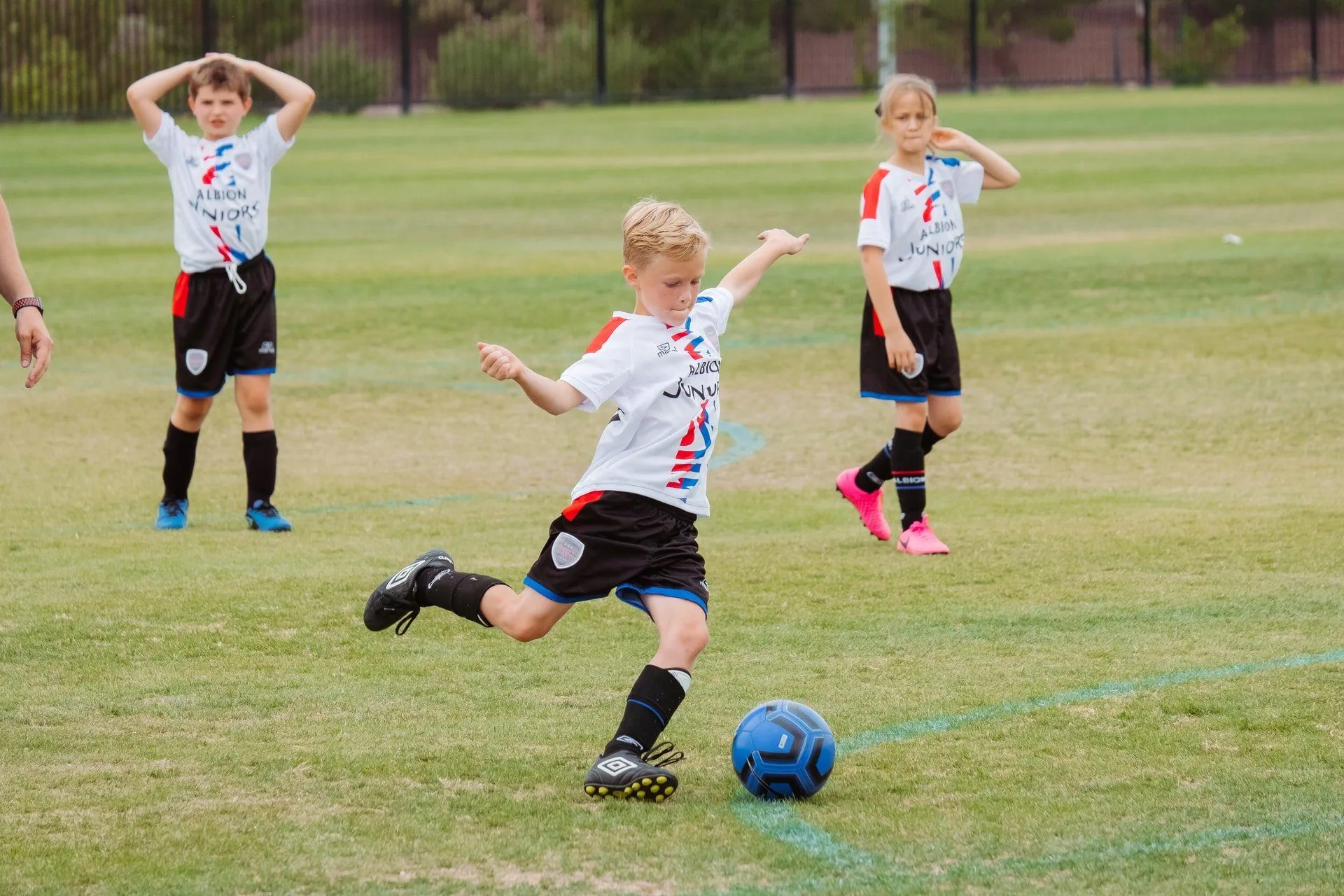Ahead of World Mental Health Day on 10th October, expert from global health system Cleveland Clinic says participating in team sports teaches life skills and can build self-confidence for the long haul The benefits children derive from playing team sports are not limited to better physical health as there are social and emotional gains too, according to an expert from global health system Cleveland Clinic, speaking ahead of World Mental Health Day.
Team Sports Set Up Children To Win In Life
“One of the obvious benefits of sports is increased physical activity, especially in an age of so much screen time, but there are a lot of social and emotional benefits as well,” says health and sport/performance psychologist Matthew Sacco, Ph.D.
Here, Dr. Sacco gives the top five reasons why participating in team sports could set a child up for big wins in life, both now and as they grow up.
#1. Strengthen social skills
Sports are a great way to socialize and if a child is struggling with emotional regulation or interacting with others, the structured setting of team sports can help create a safe environment to learn important social skills, according to Dr. Sacco.
“When kids participate in cooperative play, they have to figure out how to solve problems, how to work together and sometimes, how to manage the frustrations that come with people not doing what you want them to do,” Dr. Sacco says.
He believes these skills translate into every aspect of life, from school to the office and beyond, so learning them in childhood can lead to more positive experiences and interactions in the future.
#2. Learning important life skills
Working together toward a common goal, such as winning a match, equips children with lifelong critical skills including how to lead and follow, as well as negotiating with others, Dr. Sacco points out. “It can be really difficult to teach these skills in other settings. They happen in school, too, but the quick, active nature of sports provides an environment that is more free-flowing and less structured than a classroom,” he says.
#3. Benefiting from structure
Children need both structured and unstructured time to play, both of which contribute differently to their development, according to Dr. Sacco. He says building traits like persistence and reliability will have lasting benefits that serve children later in life.
Matthew Sacco, PhD.
“Sports provides a very structured environment where kids know, predictably, what’s going to come next, in terms of practices and game schedules. These are opportunities for them to practice consistency,” Dr. Sacco says.
#4. Gaining confidence
“In sports, every teammate has a specific position and role to play. When everyone has a responsibility, kids learn to rely on others for their particular strengths and skills. It can bring children out of their shells to have people rooting for them and trying to integrate them into a team,” Dr. Sacco says.
In addition, if children are shy or struggling with self-confidence, participating in a team sport can provide an opportunity for them to start feeling good about themselves, he adds.
#5. Fending off depression
“Negative experiences in childhood can stick with an individual for life — but research shows that playing sports can have a long-lasting positive impact on mental health for kids who are going through difficult times at home, including abuse, parental separation, and household substance abuse,” says Dr. Sacco.
He cites a 2019 study that suggested engaging in team sports may help children fend off depression. Data on 9,668 children found that, among children who were exposed to adverse childhood experiences, those who participated in team sports reported better mental health in adulthood. These children, as they got older, didn’t get as depressed as those who were not engaged in group activities or sports.
“We know that physical activity has a positive effect on mood and anxiety, but being part of a team, in particular, can also lead to improved mental health outcomes. They can help kids feel connected, feel heard and feel like they have strong support systems in hard times,” Dr. Sacco says.
The bottom line
If a child is averse to team sports, Dr. Sacco points out that there are other group pastimes that have similar mental health benefits. “Kids can still gain social and leadership skills from other activities, like going to summer camps, drama groups, or playing in a school band; it doesn’t necessarily have to be sport or even a physical activity,” he says. “That team setting is the key as it gives children opportunities to engage with their peers, hone their people skills, and learn to work together toward common goals.”
Dr. Sacco advises parents to help their children find ways to be physically active. “Whatever your child’s activity of choice is, it should be about having fun and being active,” Dr. Sacco says.
Matthew Sacco, PhD is a psychologist in Cleveland, OH. He is affiliated with the Cleveland Clinic.
References
Author Affiliations Article Information
https://jamanetwork.com/journals/jamapediatrics/fullarticle/2734743
About Cleveland Clinic
Cleveland Clinic is a nonprofit multispecialty academic medical center that integrates clinical and hospital care with research and education. Located in Cleveland, Ohio, it was founded in 1921 by four renowned physicians with a vision of providing outstanding patient care based upon the principles of cooperation, compassion and innovation. Cleveland Clinic has pioneered many medical breakthroughs, including coronary artery bypass surgery and the first face transplant in the United States. Cleveland Clinic is consistently recognized in the U.S. and throughout the world for its expertise and care. clevelandclinic.org. Follow them on twitter.com/ClevelandClinic.
Read about how Matthew Mcconaughey has become mentally stronger: https://longevitylive.com/celebrity/matthew-mcconaughey-on-how-to-become-mentally-strong/



![women [longevity live]](https://longevitylive.com/wp-content/uploads/2020/01/photo-of-women-walking-down-the-street-1116984-100x100.jpg)










